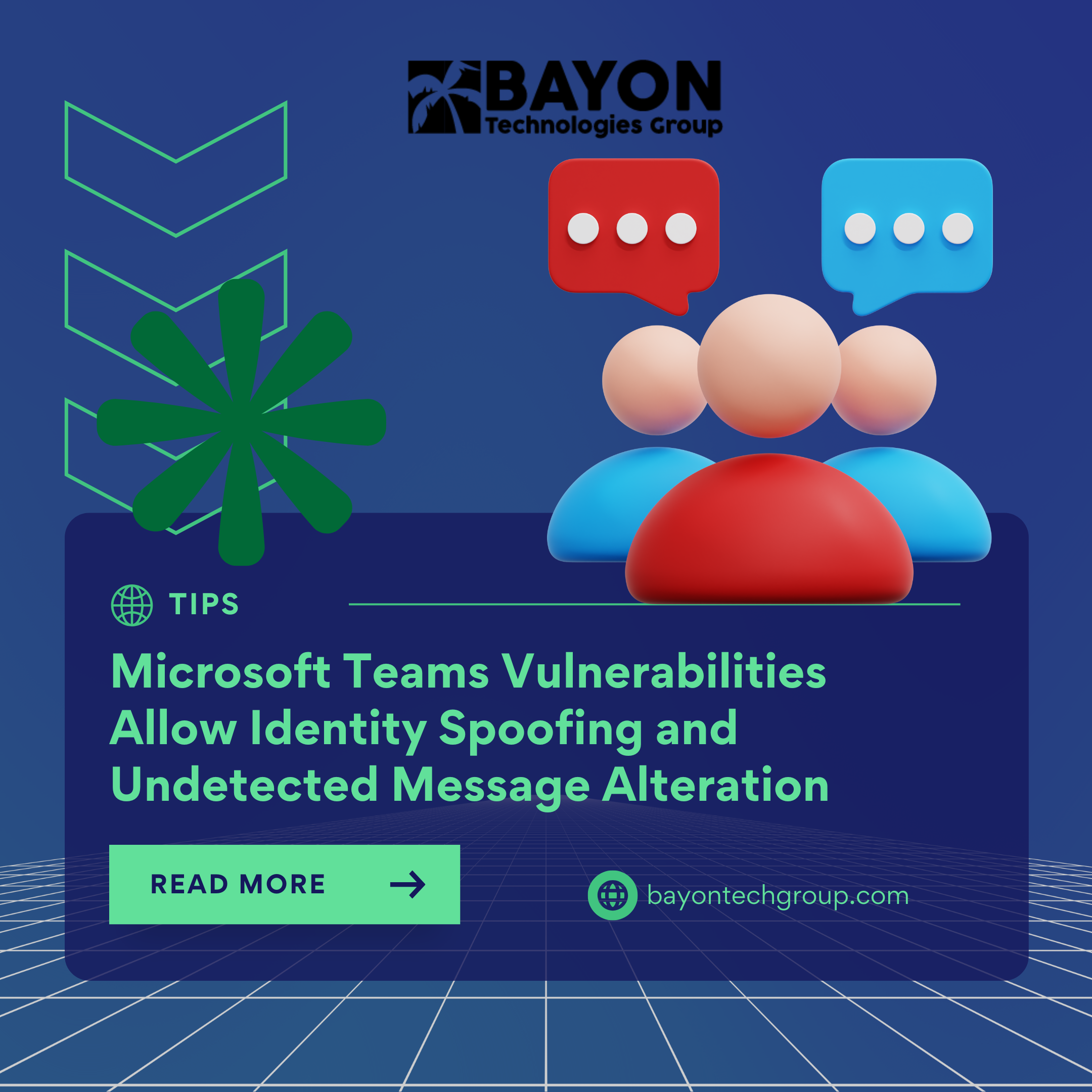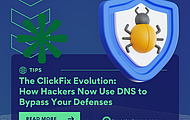Microsoft Teams Vulnerabilities Allow Identity Spoofing and Undetected Message Alteration

According to cybersecurity researchers, Microsoft Teams, a popular platform for collaboration, had significant vulnerabilities that let hackers pretend as reliable coworkers, covertly alter messages, and alter notifications while leaving conventional alerts unaffected.
The Dangers to Your Company
Four unique vulnerabilities were found, allowing adversaries to perform the following actions:
- Modify a sent message without the "Edited" indicator showing up.
- To make a message or call appear to be from an executive or other reliable contact, falsify the sender name in chat or call alerts.
- In one-on-one conversations or call alerts, alter the display name to make it appear as though you are speaking with someone else.
- Exploit both malevolent insiders and exterior guest users as possible attackers.
These flaws compromise trust, which is perhaps the most crucial component of corporate communication. Phishing, credential theft, and fraud are much easier to carry out when the recipient cannot accurately determine who delivered the message or whether it was altered.
Timeline and Scope of Patches
In March 2024, the defects were appropriately reported. A remedy for one of these (recorded as CVE-2024-38197) was released in August 2024, and subsequent updates were released in September 2024 and October 2025.
The damage potential was substantial because Microsoft Teams is used by more than 300 million people worldwide.
What You Need to Do Right Now
We advise taking the following steps to successfully protect your company from attacks that take advantage of these kinds of vulnerabilities:
- Verify complete patching: Make sure that all Microsoft Teams versions—desktop, mobile, and web—are up to date.
- Boost identity verification by requiring secondary verification outside of Teams (such as a phone confirmation) for every request involving links, money transfers, or credentials.
- Stricter external access controls: Examine and limit access for guests and third parties, making sure that external cooperation in Teams is necessary.
- Increase user training: Assure staff members that even a message "from the boss" in Teams may be a hoax; urge them to use caution when responding to unforeseen or odd requests.
Final Thoughts
The disclosure of these Microsoft Teams vulnerabilities serves as a warning that email platforms and collaboration systems are both strategic and targeted, and that trust assumptions may make them even more vulnerable. Attackers only need to bend faith instead of breaking into networks.
The staff at Bayon Technologies Group can assist your company in developing a strong defensive posture, reducing the danger of impersonation and message integrity, and securing its digital workspace from beginning to end. With their proficiency in identity verification, proactive vulnerability assessment, secure collaboration tool configuration, and corporate security consultancy, they enable companies to remain safe in the quickly changing threat landscape of today. To improve your security and preserve confidence throughout your communications ecosystem, get in touch with them right now.
‹ Back







